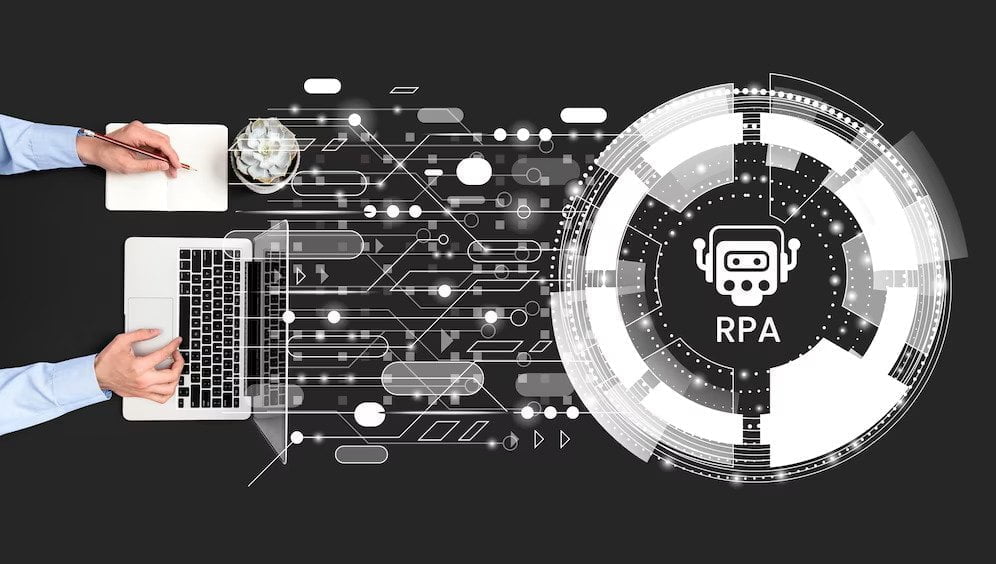How Can AI Help HR Management In The Financial Services Industry?
by Arnab Dey Finance Published on: 08 March 2023 Last Updated on: 09 March 2023

The financial services industry’s goal is to manage the collaboration of money and customer data.
This only points out the importance of recruiting the right people from the top down. Given the responsibility HR management in financial services carries on its shoulders, how exactly can they use artificial intelligence to make both efficient and ethical decisions?
This article discusses both the darling and devils of AI in HR. AI technology can help HR recruit the right individuals, automate countless administrative tasks, onboard new hires efficiently and quickly, and revolutionize the way training is conducted. On the other hand, AI lacks the accuracy and human touch to carry out certain HR processes, can be vulnerable to biases, and comes with its own share of privacy concerns.
Let’s dive in to understand the benefits and risks artificial intelligence brings to HR in finance.
The Darlings

What’s the difference between walking countless miles and hopping into an airplane to reach the same destination? The answer is in two words: speed and efficiency. Artificial Intelligence brings similar capabilities to HR. Here are the benefits AI brings to HR teams in financial services.
Screening And Interviewing
Sourcing candidates, screening CVs, and interviewing potential hires are some of the most time-consuming HR processes. AI, today, can handle most of the heavy lifting in this area. It can sift through countless resumes in a significantly smaller time span. It can also quickly study a candidate’s skills and compare them with the highest-performing employees operating in a similar job position. When it comes to financial crime screening, AI can assist but should not be left to do the screening alone.
AI further speeds up the recruitment process by deploying chatbots to gather comprehensive information about potential hires. Given AI’s focus on data-driven assessment, it can also contribute to a more diverse and inclusive workplace in the Financial Services Industry. If a company wants to hire a candidate from its database of previous applicants, AI can efficiently get that task done as well.
Onboarding
AI takes away the burden of manual tasks from HR and makes it effortless for employees to access, navigate, and soak in all the onboarding literature.
The Financial services industry technology ensures onboarding occurs 24/7 with the help of digital assistants. These assistants then guide new recruits through all the onboarding steps, actively suggest what steps to take next, and finally help them easily fit into their new jobs.
AI also eases HR’s administrative burden by automating the receiving and delivering of most of the paperwork, login information, and company policies. It keeps track of which documents were read and recorded electronic signatures as each step progresses into the next.
Time Saving
Sure, automation isn’t a new HR trend. HR teams have been deploying the power of automation to get several time-consuming and repetitive tasks done for quite some time.
So, what difference does AI make, exactly?
Artificial intelligence has the capability to take tasks like common employee questions about policies and processes, benefits management, and processing leave forms that were initially performed by humans.
When these low-value tasks are taken care of, HR can shift their focus to high-value, strategic tasks. These include keeping the employees engaged and motivated, mentoring and constructive feedback, and establishing robust financial services industry workplace relationships.
Training
AI has another massive role to play when it comes to offering efficient employee training. With the potential to unlock personalized learning pathways, AI training software can help employees not only retain what they learn but also reach their full potential.
Aside from offering courses tailored to everyone’s individual needs, AI can spot any skills gaps with precision. This helps HR translate an employee’s weaknesses into strengths. When HR incorporates AI chatbots into their training software, trainees can have a seamless financial services industry learning experience.
For instance, unlike humans, chatbots are available 24/7. This makes them powerful enough to offer instant, real-time, and intelligent guidance to employees so they can complete their courses effortlessly and efficiently.
The Devils

In recent years, the financial services industry AI’s wizardry has redefined countless industries in business, and HR is no exception. This, however, doesn’t bring us to the conclusion that AI is perfect. Here are the risks associated with AI that HR departments must take into consideration.
Inaccuracies
For AI, God is in the data. The quality of data directly impacts the performance of any AI software you deploy. If the data infused isn’t up to the mark, the results will be distorted, vague, or worse, flawed. Take Amazon’s AI fiasco, for example.
Right after unlocking its first recruitment software, Amazon decided to take it off the market. The reason? The software ended up favoring the resumes of men. This is because the program used by Amazon rested solely on the resumes the company had accumulated over the previous decade and most of these resumes were based on male profiles of the financial services industry.
Entrenched Bias
Let’s face it: AI technology is only as good as the data it feeds on and the humans that create it. This may leave massive, unintentional flaws within the system, which may later translate into entrenched biases. Unfortunately, there is no end to disparities in the world we live in.
So, how does this fact work for AI? AI’s purely data-driven approach can have eyes only for candidates that meet the criteria and not the ones that are the worthiest for the job. For instance, if a candidate has previously worked in a startup, a human manager would consider them a great fit for their fast-growing company. On the other hand, financial services industry AI may simply omit this information.
Privacy Concerns
A survey by Oracle revealed that 31% of the respondents preferred human interaction to machine interaction. Given the number of privacy concerns that ride alongside AI technology, most companies prefer not to use it in human resources.
Artificial intelligence requires a candidate’s sensitive information to gather comprehensive insights before hiring them. From an ethical lens, such a step requires companies to take the necessary permissions from a candidate before accessing their personal data. If not used with precaution, this approach can put a company in the spiral of data breaches.
The Lack of Ethical Responsibilities
Ethics is a critical element of HR in the financial services industry – especially when it comes to issues like fraud. For instance, if AI technology is programmed by someone who isn’t particularly adept in handling ethical dilemmas, the software automatically takes on a biased form when the time comes to handle a case within the organization.
The Bottom Line
Regardless of how advanced the financial services industry AI gets, the need for human assistance continues to be irreplaceable. In other words, the best way to bring out the best in HR in finance is to combine the technical powers of AI with human judgment.
Read Also:



































































































